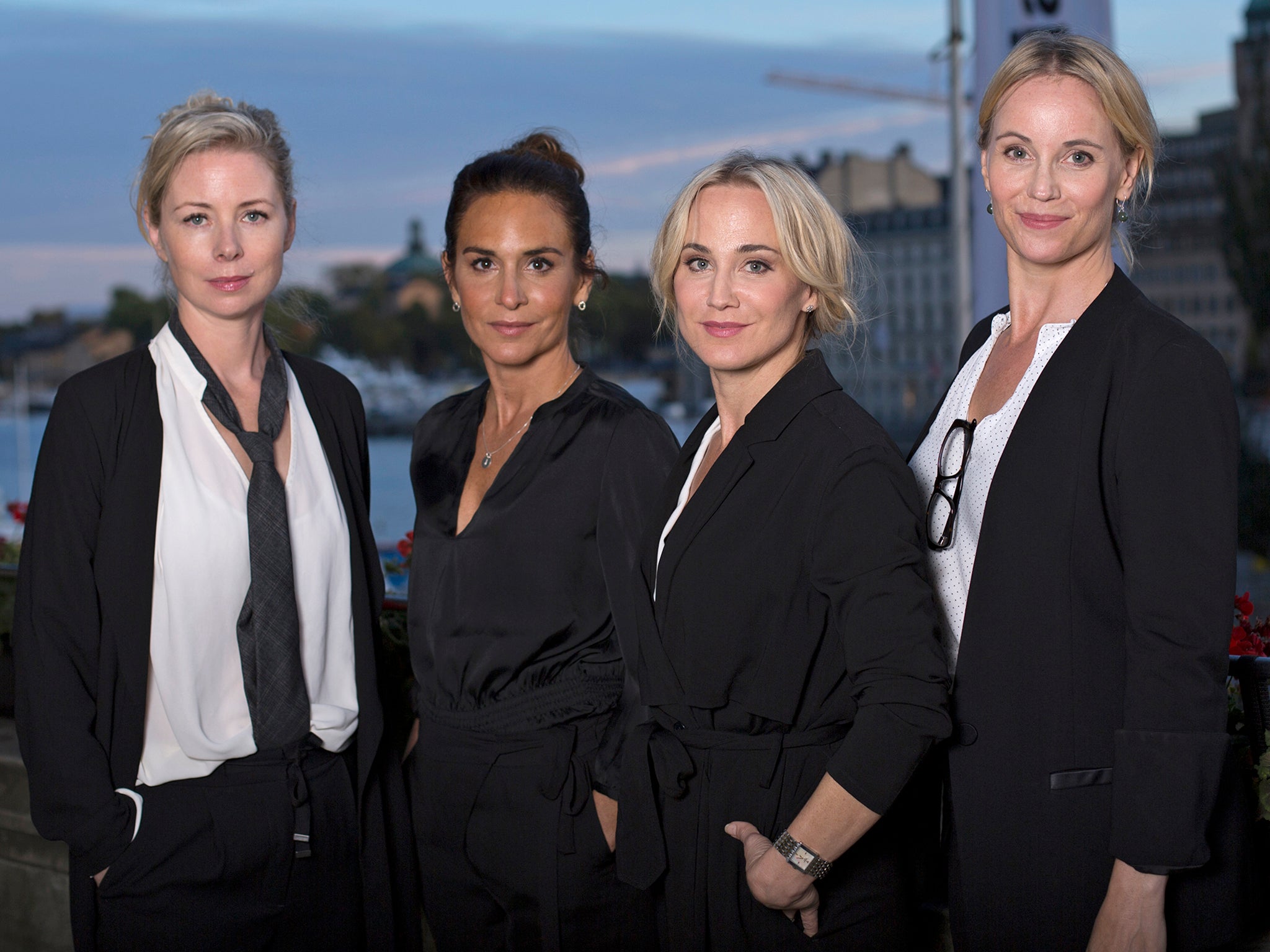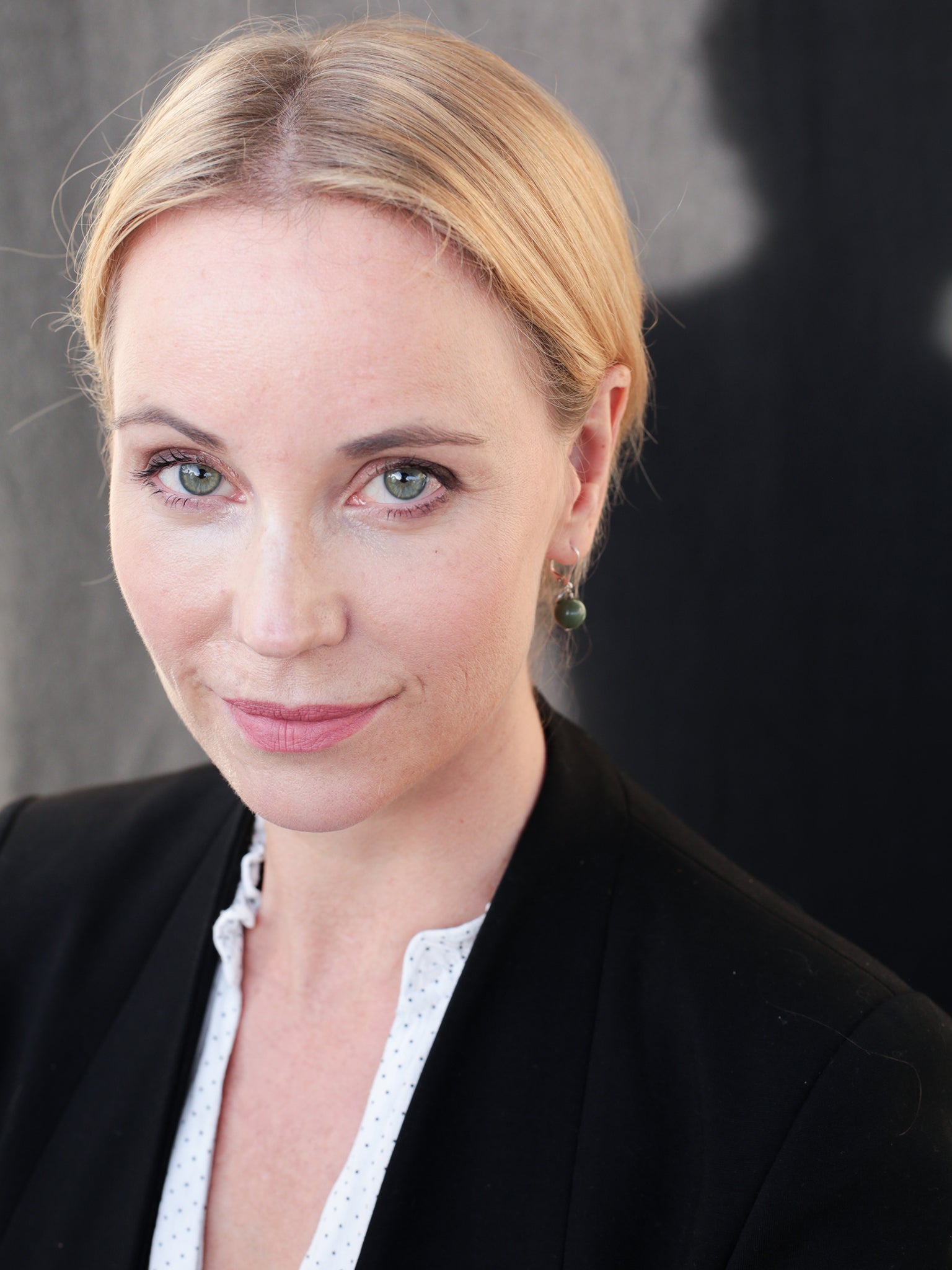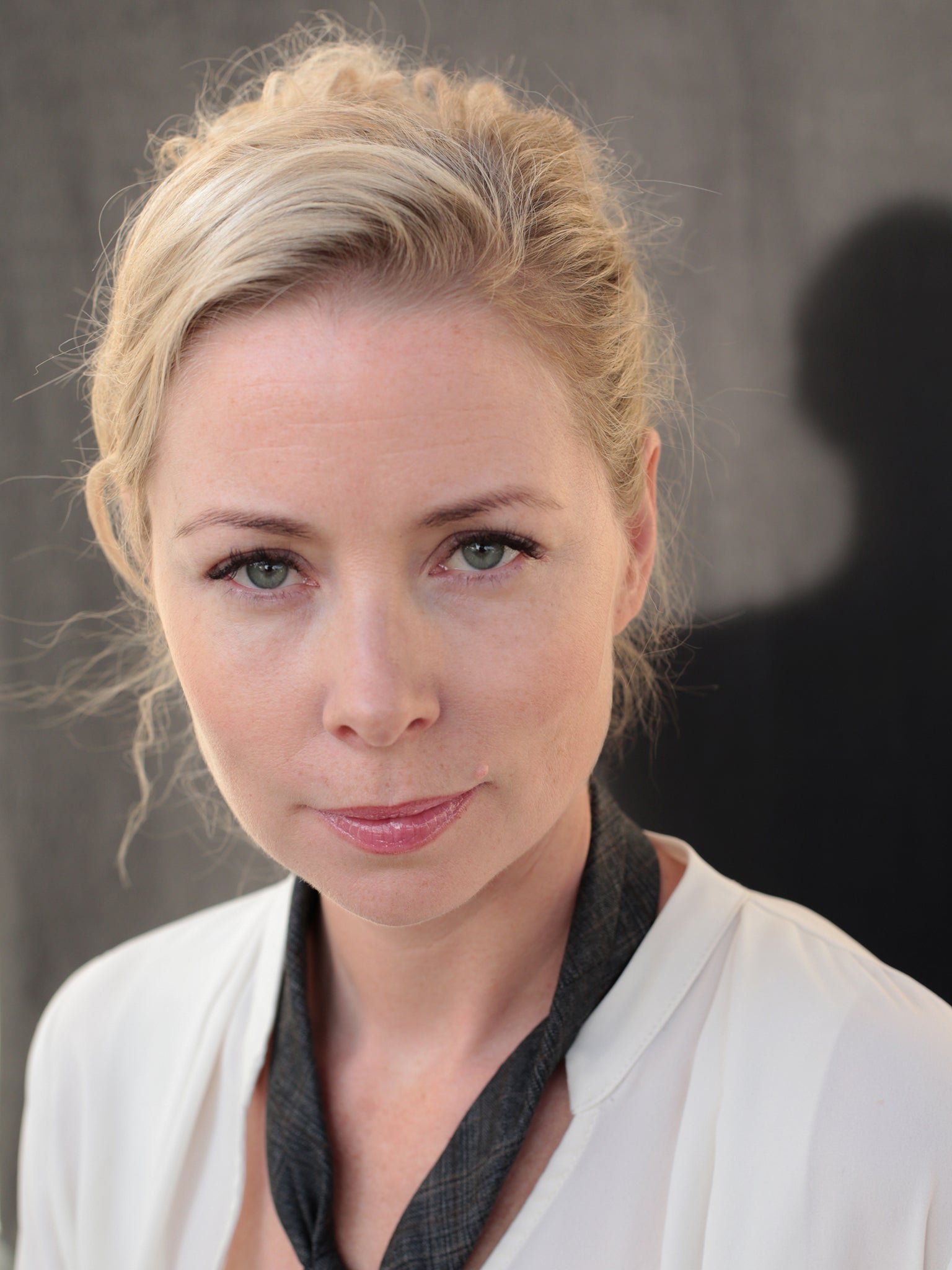Silence, Action: Swedish stars confront sexual harassment in the film industry
In Sweden, hundreds of actresses have published their own experiences of sexual abuse and coercion in a collective letter. Andy Martin speaks to four stars working on a new television thriller, Honour, who are leading the charge to change the way the industry works

In the wake of the allegations of sexual misconduct against Harvey Weinstein and Kevin Spacey and the #metoo campaign, hundreds of Swedish actresses have published their own experiences of sexual abuse and coercion in a collective letter and online with the hashtag “silenceaction” (which is what the director of a film says in Sweden: Silence! Action!). The difference is that neither perpetrators nor victims are named. It’s all anonymous.
At the same time four female actors, Sofia Helin, Anja Lundqvist, Julia Dufvenius, and Alexandra Rapaport, together with a producer, Birgitta Wännström, are working on a new TV drama series called Honour, scheduled for 2018, that aims to break the mould of the way the Swedish film industry works.
Sofia Helin: It’s all about honour. When you abuse someone you take their honour. It’s the last thing you have.
Anja Lundqvist: We have been inspired by an actual law firm. All women. Where they are trying to change the law to make it better for victims. The idea is that you have to get a ‘YES’ from a person before you can sleep with them. Real consent.
Julia Defvenius: That doesn’t exist now. You have to scratch and fight and yell ‘NO!’
Helin: Whereas what really happens to the victims of rape is 70 or 80 per cent freeze. They don’t even say no/ You can’t move. Which is very different from what is often portrayed in films and books.
Dufvenius: So we have these four characters. Four women with a past. They studied together. At law school. And something happened when they were students. They did something really really bad. And they have to cover up for this for the rest of their lives. So they get very close. And they start a law firm together.
Helin: That is what happens when you study. So much alcohol, so much party. At least in Sweden it’s like that.
Lundqvist: We’re the same generation. Forty-plus now. It’s been twenty years – since we are in acting school – with all of this lust for living – and then into the working life and going our separate ways – and then finally coming together again, with all the experience that we have, different experiences, experiences that are almost the same – I think it’s beautiful.
Dufvenius: And we still are so good-looking…
Helin: And what I’ve been aiming for is to work with a group of women that are my age, and tell something that I would like to see that is about something that matters to me. This is a very big problem in Swedish society, that we divide our society up into good and evil.
Lundqvist: It is a thriller. That is very important. It’s a television series. 8 episodes. With several seasons ahead. In our minds. It’s not particularly feministic, it’s about everyone.
Helin: Although…My glasses are feministic. I can’t take them off. Even if I wanted to, I can’t.
Dufvenius: I just saw ‘Love Actually’ again. A film I really loved once. But when I saw it again I didn’t like it any more. Something that was very funny ten years ago is now not funny at all.
Helin: ‘Last Tango in Paris’ – that was horrible – was that consensual? What’s so special about the times we are in now, it’s like…

Lundqvist: It’s a revolution.
Helin: Yes, it’s a revolution.
Lundqvist: We saw it as part of our job. That we would have to cope with these guys who are so badly behaved. Before it was like, oh so I’m working with HIM. And then 50 per cent of my energy, of my artistry, of my acting everything that I do, is going towards trying to avoid, to cope. We are now in a position as co-producers with Birgitta [Wännstrom] where we don’t have to work with any sexual predator. If we don’t want to. We are deciding who is going to be in this.
Helin: Just yesterday one of our colleagues said, I was supposed to be acting with that man, but I called the casting director and said, I won’t do that, not with him. You have to re-think this.
Lundqvist: And they did.
Helin: So things are happening. But what we try to do in this campaign [“silenceaction”] is not to go to the media and hang big stars in public.
Dufvenius: It’s about the structure. When you are vulnerable and when you are not. When you are dependent on someone.
Lundqvist: It’s not just sexual – it’s about power. It’s the hippo in the room.
Helin: It’s ‘elephant in the room’ in English.
Lundqvist: We say the hippo. An open secret.
Helin: There are a lot of hippos in the Swedish film industry.
Dufvenius: This is not an easy question, should we name them or not name them? Some of them are…
Lundqvist: They’re huge.
Helin: They’re dangerous.
Dufvenius: They’ve been doing it a long while. They are criminal people but the laws do not apply to them as soon as you’re on set and the director says “Silence! Action!”. It’s all happened so fast – just two weeks – it began with just one question among ten actors. And then it became huge in such a short time.
Lundqvist: Social media has been so good for women, like the Arab spring, because we connected with each other.
Dufvenius: Naming of names, that’s not interesting. Because we have also been part of the structure.

Lundqvist: It’s true. When we first met, Julia (Dufvenius) and I – my first memory and her first memory is: cold eyes. Comparing each other, in the cafeteria of the Royal Dramatic Theatre. We all wanted to be – and I hate the word – HAND-PICKED – yes, she was hand-picked – by the big director, by Ingmar Bergman or whoever.
Lundqvist: Yes, you had to be “hand-picked” by Bergman.
Helin: And now you need to take a shower because you have been hand-picked.
Lundqvist: And there is envy and anger and everything.
And there are male actors too who have been beaten and bullied and abused.
Helin: It’s to do with their place in the hierarchy.
Dufvenius:When you have someone in your team who is violent – whether it’s a play or a film – then everyone has to adjust to that person.
Lundqvist: And everybody is afraid.
Dufvenius:It’s so interesting isn’t it: we live in this civilised society and we work in theatre and we work with feeling. And yet raw power has the last word. Raw muscle strength. How tall you are.
Lundqvist: These male actors – they look like body builders – they must exercise all day long.
Helin: We own this project together. We share it equally. Julia, you pitched it at Cannes.
Dufvenius: So you have these four women who went to law school together and start a law firm together. And they have a past together. When the series starts they are very successful, everything is going just fine, they are going to huge parties. And then they get a threat – an envelope – a piece of wood with blood on it. And a flower on a brooch. They don’t understand where it comes from. And one of us is called to a crime scene – her husband is a policeman – and there is a woman who is accused of murder, because the crime scene is a man who has been murdered. In his forehead he has a knife. The handle of the knife is missing – this is what was in the envelope: the piece of wood with blood on it. That’s the kick-off. The past is coming back to haunt them. In crimes that are taking place right now…
Lundqvist: Someone knows what they did in Uppsala.
Dufvenius: We were longing for acting together. It’s always one woman and a lot of men. Now we have more women – but there are a lot of men in the series too. And they are good and they are bad, just as the women are. It’s not like all men are stupid and the women are powerful, it’s not like that.
Lundqvist: It’s not like a cartoon, because we are mature women. We have lived in the real world. We do wrong. We’re not always nice to each other. We can fight, argue.
Helin: Be narcissistic.
Lundqvist: It’s allowed.
Helin: Naming of names. We want to do it with honour, with integrity. So that we don’t do revenge and put more hatred into everything.
Dufvenius: Or just put the spotlight on the predators. We want to put the spotlight on the whole structure.
Lundqvist: And we want to show not just sexual abuse but also how lonely the victims feel in the business. They feel like losers and they don’t tell anybody – and now suddenly they can talk to 700 colleagues.
Helin: And tell them how they feel. It’s amazing. This project is more important than anyone of us individually.
Lundqvist: In the series, we have to let these women be sexy, interesting, feministic, not feministic, and…
Dufvenius: Disgusting…
Lundqvist: Or very attractive – the whole range, the whole spectrum.
Helin: It’s a bit Sex in the City meets the Millennium trilogy. But Sex in the City, it’s only like a touch. But it isn’t nordic noir. It’s a touch of nordic noir. For me nordic noir is depressive, dark and grey.
Lundqvist: This is more colourful. We want to have lipstick. Red lipstick.
Dufvenius: And blood of course. Lots of red.
Helin: What we are trying to do in this project is – four women going on their own, but at the same time they are together, they have a past together, they have to solve this together. And people have to feel, We want to be with them.
Lundqvist: We all grew up with Olof Palme – in that hopeful spirit, where Sweden was so good.
Helin: If a bit fascistic.
Lundqvist: And then came the Eighties – it was all about the money, it was kind of shallow, individuality was the thing, and now we are trying to get those two things to meet. You are allowed to be an individual that stands out with your own style and your own preferences. Your own colours. And still we want to work as a collective.
Helin: And it’s the same thing at the law firm – they have to stand up for each other and save each other.
Lundqvist: We get to choose if we want to be naked or we don’t want to be naked. We can decide. There was that time when I was shooting a shower scene. I was wearing flesh coloured underwear. The director wasn’t creepy or anything. But he says we can’t shoot this, we can see the strap. The guy I’m acting with says, Look, I can put my arm around you like this, then they can’t see. That was so nice. We could shoot it without him having my breast in his face.
Helin: He was a gentleman.
Lundqvist: But it felt like the whole decision was on me. With the whole team standing there. And he helped me. Not everyone is like that.
Helin: We all know who these people are. We have 600 pages of stories. And the opera singers have gathered. And there are other groups of people gathering – it’s a secret though.
Dufvenius: And in sports also.
Helin: It’s spreading. Everyone can use it in the end. Nurses too.
Dufvenius: I have about 600 stories. Which one can I pick?
Helin: If you want one story… it’s not the most gross. But it’s so sad. There was this 13-year old girl. Doing her first summer play. Her first play with professional actors. And they sleep in a small cottage together. And then in the night the star of the show, an old man, came to her bed and just stuck his tongue in her mouth. And she ended the story by saying that was the first time she kissed. Someone stealing your first kiss. That is so mean, so horrible. Thirteen and she had never been kissed.
Join our commenting forum
Join thought-provoking conversations, follow other Independent readers and see their replies
Comments
Bookmark popover
Removed from bookmarks